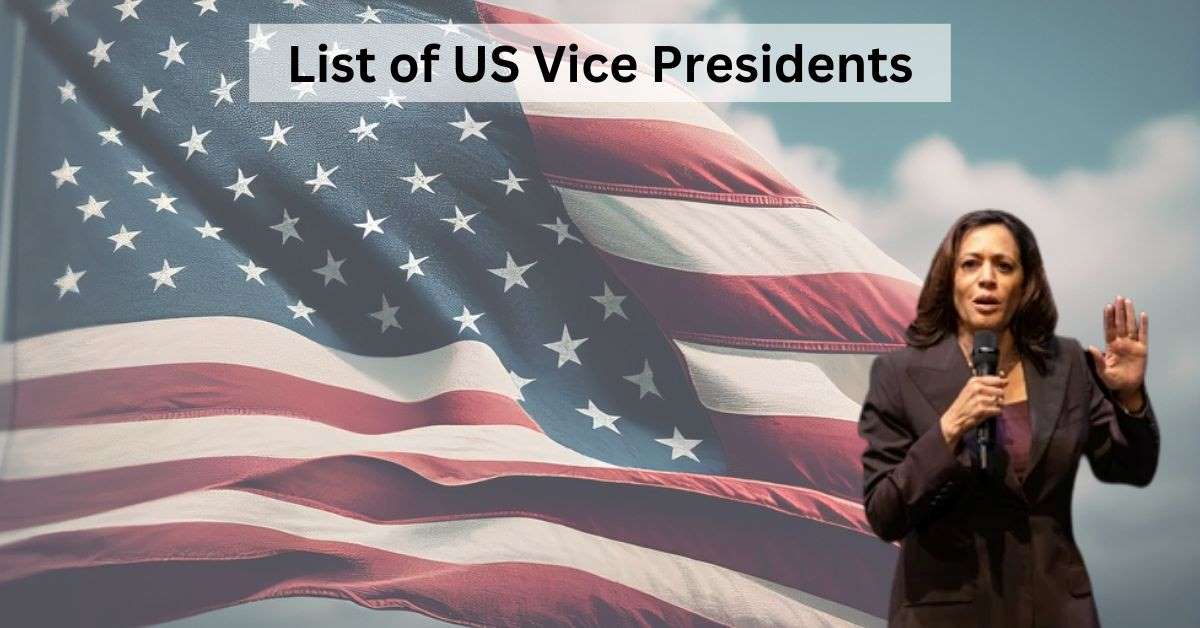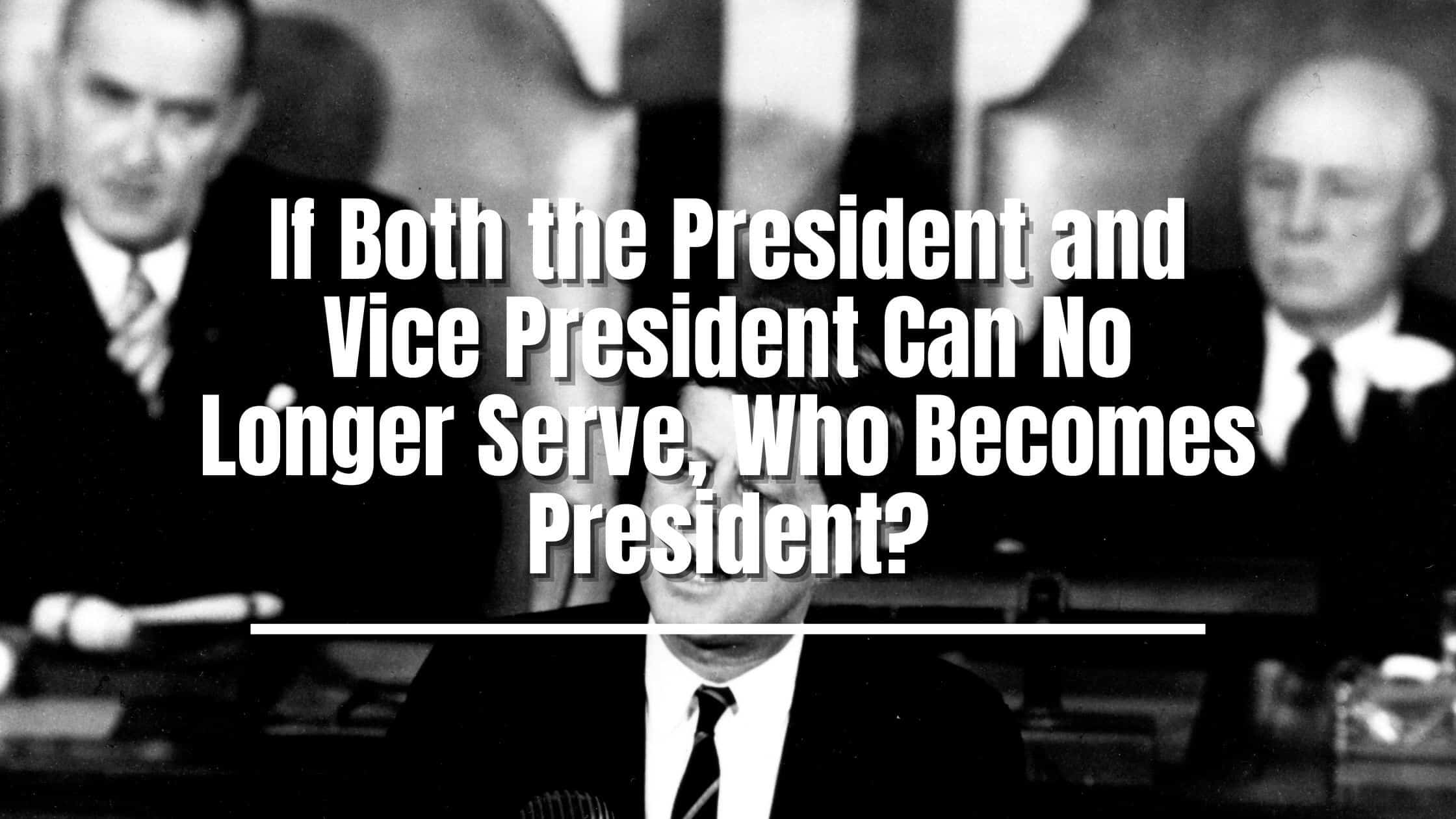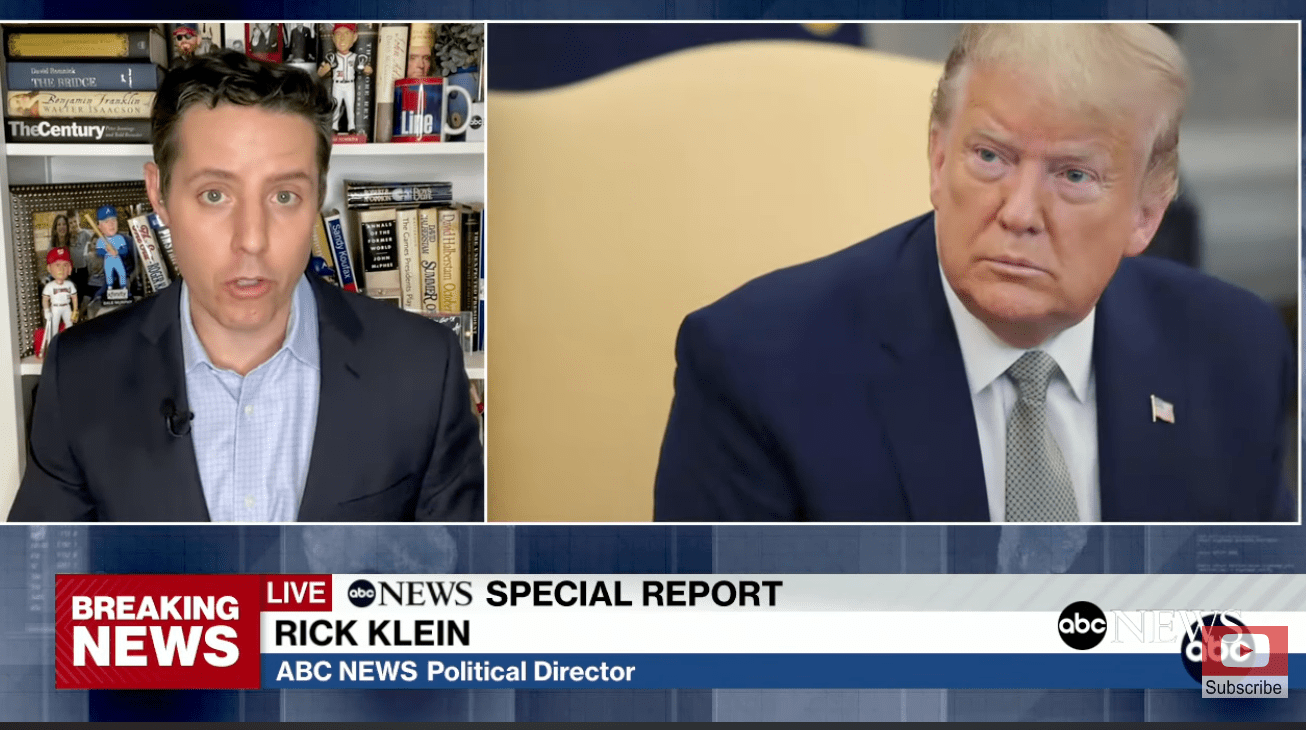Can a former president serve as vice president? The answer is yes.
The United States Constitution does not explicitly prohibit a former president from serving as vice president. In fact, there is no constitutional requirement that the vice president be a natural-born citizen of the United States. The only requirements for the vice presidency are that the person be at least 35 years old, a resident of the United States for at least 14 years, and not have been convicted of a felony.
There are several reasons why a former president might choose to serve as vice president. One reason is to continue to serve the country in a high-level position. Another reason is to help the president achieve their goals. A former president can provide the president with valuable advice and support, based on their own experience in the White House.
There have been three former presidents who have served as vice president. John Adams, who served as president from 1797 to 1801, was elected vice president in 1801 under President Thomas Jefferson. Martin Van Buren, who served as president from 1837 to 1841, was elected vice president in 1833 under President Andrew Jackson. Andrew Johnson, who served as president from 1865 to 1869, was elected vice president in 1865 under President Abraham Lincoln.
Can a former president serve as vice president
Historical Context
- The first former president to serve as vice president was John Adams, who served under Thomas Jefferson from 1801 to 1805.
- The second was Martin Van Buren, who served under Andrew Jackson from 1833 to 1837.
- The third was Andrew Johnson, who served under Abraham Lincoln from 1865 to 1869.
Modern Precedent
In recent history, there have been no former presidents who have served as vice president. However, there have been several vice presidents who have gone on to become president, including George H.W. Bush, Joe Biden, and Kamala Harris.
Constitutional Considerations
The Constitution does not explicitly prohibit a former president from serving as vice president. However, there are some legal scholars who argue that it would be unconstitutional for a former president to serve as vice president because the vice president is next in line to the presidency. They argue that this would create a conflict of interest, as the former president would have a vested interest in seeing the president removed from office.
Despite these arguments, there is no clear consensus on whether or not a former president could legally serve as vice president. The issue has never been tested in court, and it is likely that it would be a difficult case to resolve.
Can a former president serve as vice president?
The answer to this question is yes. The United States Constitution does not explicitly prohibit a former president from serving as vice president. In fact, there is no constitutional requirement that the vice president be a natural-born citizen of the United States. The only requirements for the vice presidency are that the person be at least 35 years old, a resident of the United States for at least 14 years, and not have been convicted of a felony.
- Historical Precedent: There have been three former presidents who have served as vice president: John Adams, Martin Van Buren, and Andrew Johnson.
- Constitutional Considerations: There is no clear consensus on whether or not a former president could legally serve as vice president. The issue has never been tested in court.
- Political Considerations: It is unlikely that a former president would be nominated for vice president, as it is generally seen as a step down from the presidency.
- Public Opinion: There is no clear consensus on whether or not the public would support a former president serving as vice president.
- Practical Considerations: There are some practical considerations that would need to be addressed if a former president were to serve as vice president, such as security and protocol.
- Ethical Considerations: Some people argue that it would be unethical for a former president to serve as vice president, as it could create a conflict of interest.
Ultimately, the decision of whether or not a former president can serve as vice president is a complex one that would need to be made on a case-by-case basis. There are a number of factors that would need to be considered, including the legal, political, public opinion, practical, and ethical implications.
Historical Precedent
This historical precedent is significant because it demonstrates that it is possible for a former president to serve as vice president. These three former presidents all went on to serve as vice president after completing their terms as president. John Adams served as vice president under Thomas Jefferson from 1801 to 1805. Martin Van Buren served as vice president under Andrew Jackson from 1833 to 1837. Andrew Johnson served as vice president under Abraham Lincoln from 1865 to 1869.
- Role of Former Presidents as Vice Presidents
Former presidents who have served as vice presidents have played a variety of roles. John Adams was a respected elder statesman who provided wise counsel to President Jefferson. Martin Van Buren was a skilled politician who helped President Jackson to pass his legislative agenda. Andrew Johnson was a strong supporter of President Lincoln during the Civil War.
- Examples of Former Presidents Serving as Vice Presidents
The three former presidents who have served as vice presidents provide three unique examples of how former presidents can serve in this role. John Adams was a Federalist who served under a Democratic-Republican president. Martin Van Buren was a Democrat who served under a Democratic president. Andrew Johnson was a Democrat who served under a Republican president.
- Implications for Future Former Presidents
The fact that three former presidents have served as vice presidents suggests that it is a viable option for future former presidents. This could be a way for former presidents to continue to serve their country and to provide their expertise and experience to the president.
Ultimately, the decision of whether or not to serve as vice president is a personal one for each former president. However, the historical precedent of John Adams, Martin Van Buren, and Andrew Johnson demonstrates that it is a possible and potentially rewarding role.
Constitutional Considerations
The Constitution does not explicitly prohibit a former president from serving as vice president. However, there are some legal scholars who argue that it would be unconstitutional for a former president to serve as vice president because the vice president is next in line to the presidency. They argue that this would create a conflict of interest, as the former president would have a vested interest in seeing the president removed from office.
Despite these arguments, there is no clear consensus on whether or not a former president could legally serve as vice president. The issue has never been tested in court, and it is likely that it would be a difficult case to resolve.
The lack of a clear consensus on this issue creates uncertainty for both former presidents and the American people. Former presidents may be hesitant to seek the office of vice president if they are unsure of whether or not they would be eligible to serve. Additionally, the American people may be hesitant to support a former president for vice president if they are unsure of whether or not that person would be able to legally serve in the role.
It is important to note that the issue of whether or not a former president can legally serve as vice president is a complex one. There are a number of factors that would need to be considered, including the legal, political, public opinion, practical, and ethical implications.
Political Considerations
It is generally seen as a step down from the presidency to the vice presidency. This is because the vice president is not directly elected by the people and has relatively little power. The vice president's main role is to preside over the Senate and to be ready to take over the presidency if the president is unable to serve. As a result, many former presidents would be reluctant to accept the position of vice president, as it would be seen as a demotion.
There are a few reasons why a former president might be nominated for vice president. One reason is if the presidential candidate is seen as weak or inexperienced. In this case, the former president could be seen as a way to add experience and stability to the ticket. Another reason is if the presidential candidate is from a different party than the former president. In this case, the former president could be seen as a way to bridge the gap between the two parties.
However, it is important to note that it is still very unlikely that a former president would be nominated for vice president. This is because the vice presidency is generally seen as a stepping stone to the presidency, and former presidents have already served in the highest office in the land. Additionally, former presidents may be seen as being too old or out of touch with the current political climate.
Public Opinion
Public opinion is an important factor to consider when discussing whether or not a former president can serve as vice president. If the public does not support a former president serving in this role, it is unlikely that any former president would be nominated for the position. Additionally, if the public does not support a former president serving as vice president, it could make it difficult for that person to be effective in the role.
There are a number of reasons why the public might not support a former president serving as vice president. One reason is that the public may see it as a step down from the presidency. Another reason is that the public may be concerned about the former president's age or health. Additionally, the public may be concerned about the former president's political views or their ability to work with the president.
However, there are also a number of reasons why the public might support a former president serving as vice president. One reason is that the public may see it as a way to bring experience and stability to the ticket. Another reason is that the public may be impressed by the former president's accomplishments in office. Additionally, the public may be confident in the former president's ability to serve as president if the need arises.
Ultimately, the decision of whether or not to support a former president serving as vice president is up to the American people. There are a number of factors that the public will need to consider when making this decision, including the former president's age, health, political views, and ability to work with the president.
Practical Considerations
If a former president were to serve as vice president, there would be a number of practical considerations that would need to be addressed. One of the most important considerations would be security. Former presidents are entitled to Secret Service protection for the rest of their lives. This would need to be taken into account when planning for the vice president's security. Additionally, the vice president's residence, the Naval Observatory, would need to be upgraded to accommodate a former president and their family.
Another practical consideration would be protocol. The vice president is second in line to the presidency. This means that they would need to be prepared to take over the presidency at a moment's notice. This would require the former president to be briefed on all national security and foreign policy matters. Additionally, the former president would need to be prepared to travel at a moment's notice.
These are just some of the practical considerations that would need to be addressed if a former president were to serve as vice president. It is important to note that these are just a few of the many challenges that would need to be overcome. Ultimately, the decision of whether or not to serve as vice president is a personal one for each former president.
Ethical Considerations
The ethical implications of a former president serving as vice president are complex and multifaceted. Some people argue that it would be unethical for a former president to serve in this role, as it could create a conflict of interest. Others argue that there is no inherent ethical conflict in a former president serving as vice president, and that it could even be beneficial for the country.
- Conflict of Interest
One of the main ethical concerns about a former president serving as vice president is that it could create a conflict of interest. The vice president is next in line to the presidency, which means that they would be responsible for taking over the presidency if the president were to become incapacitated or die. This could create a conflict of interest if the former president had personal or political ambitions that were not in the best interests of the country.
- Experience and Expertise
On the other hand, some people argue that a former president could bring a wealth of experience and expertise to the vice presidency. Former presidents have a deep understanding of how the government works and the challenges facing the country. This experience could be invaluable to the president, who may not have the same level of experience.
- Public Perception
Another important ethical consideration is how the public would perceive a former president serving as vice president. Some people may see it as a way for the former president to remain in the spotlight or to wield undue influence over the president. Others may see it as a way to bring experience and stability to the government.
- Historical Precedent
There is no clear historical precedent for a former president serving as vice president. However, there have been a few cases of former presidents serving in other high-level government positions, such as Secretary of State or Secretary of Defense. These examples suggest that it is not inherently unethical for a former president to serve in a different government role.
Ultimately, the decision of whether or not it is ethical for a former president to serve as vice president is a complex one that must be made on a case-by-case basis. There are a number of factors to consider, including the former president's character, motivations, and the current political climate.
Can a former president serve as vice president?
The answer to this question is yes. The United States Constitution does not explicitly prohibit a former president from serving as vice president. In fact, there is no constitutional requirement that the vice president be a natural-born citizen of the United States. The only requirements for the vice presidency are that the person be at least 35 years old, a resident of the United States for at least 14 years, and not have been convicted of a felony.
Question 1: Are there any former presidents who have served as vice president?
Yes, there have been three former presidents who have served as vice president: John Adams, Martin Van Buren, and Andrew Johnson.
Question 2: Are there any ethical concerns about a former president serving as vice president?
Some people argue that it would be unethical for a former president to serve as vice president, as it could create a conflict of interest. Others argue that there is no inherent ethical conflict in a former president serving as vice president, and that it could even be beneficial for the country.
Ultimately, the decision of whether or not it is ethical for a former president to serve as vice president is a complex one that must be made on a case-by-case basis.
Conclusion
The question of whether or not a former president can serve as vice president is a complex one with no easy answer. There are a number of factors to consider, including the legal, political, public opinion, practical, and ethical implications. Ultimately, the decision of whether or not to serve as vice president is a personal one for each former president.
However, it is important to note that there is no clear consensus on whether or not a former president can legally serve as vice president. The issue has never been tested in court, and it is likely that it would be a difficult case to resolve. Additionally, there is no clear consensus on whether or not the public would support a former president serving as vice president. Some people may see it as a step down from the presidency, while others may see it as a way to bring experience and stability to the ticket.
Ultimately, the decision of whether or not a former president can serve as vice president is a complex one that must be made on a case-by-case basis. There are a number of factors to consider, and there is no easy answer.
Article Recommendations



ncG1vNJzZmiclaK8b7HNnqmgoaOirrPAjaemaKqVobKiv8SsaWibkaN6onnFqKmmnaJivbOx0qKbnqakYsCmvtWeZJqrXau2pLGMqameq5mZsq%2FAjaGrpqQ%3D